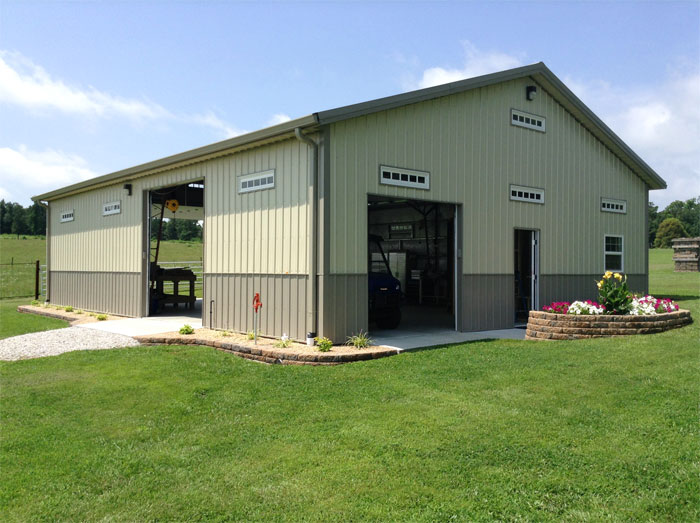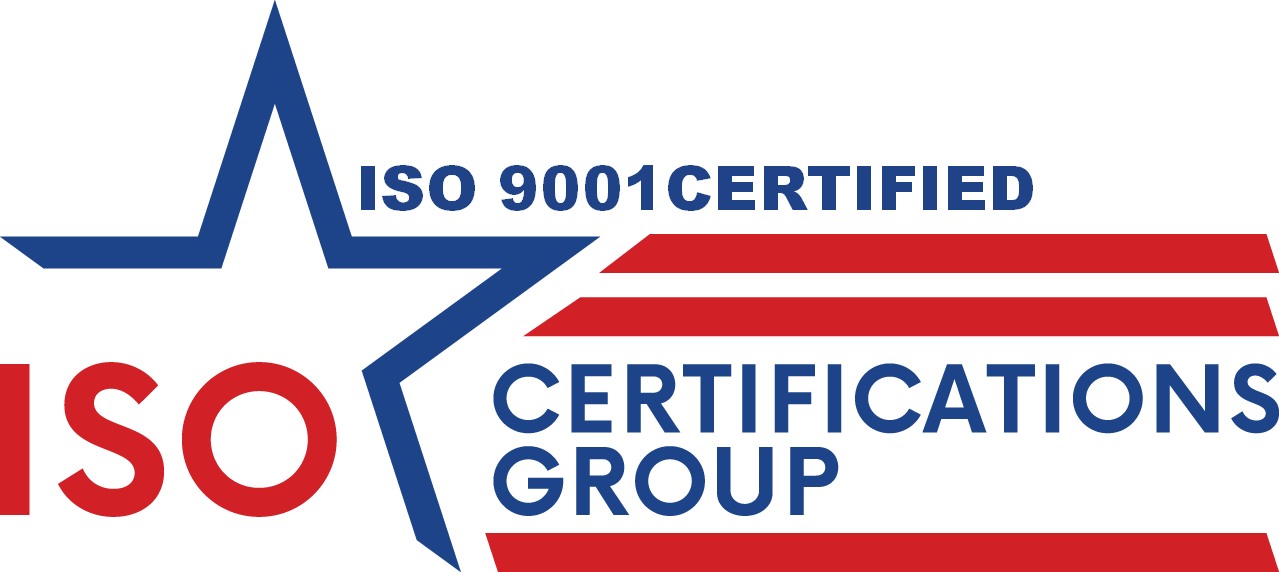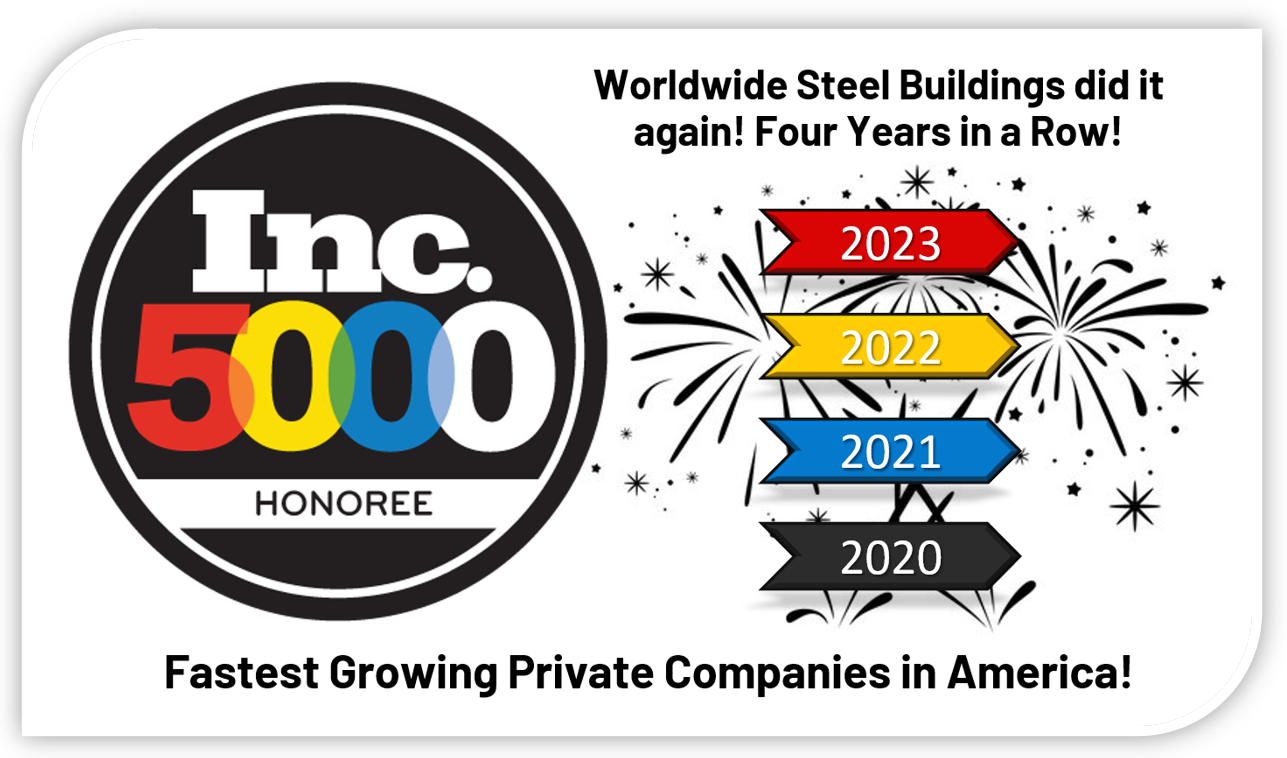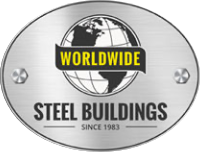« Blog Home
Pre-Construction Checklist for Metal Buildings

Imagine you’re setting off on a road trip to a destination you’ve been dreaming about for years. You’ve mapped out the route, packed your belongings, and fueled up your vehicle, ready to hit the road.
Just as a successful road trip requires careful planning and preparation, constructing a prefab metal building demands meticulous attention to detail and a well-thought-out pre-construction checklist for metal buildings.
As you begin this process, you’ll soon realize that each step you take lays the foundation for the successful realization of your metal building project. From defining your needs to navigating the legal requirements and selecting the right contractors, every decision you make shapes the outcome of your construction project.
Let’s start this journey together by exploring the steps that will guide you toward the creation of your ideal metal building, ensuring that your pre-construction planning phase sets you on the right path.
Identifying Your Needs
When planning a custom steel building, it is essential to have a clear vision of your usage intentions. Consider space needs, building design preferences, and the possibility of future expansions for your steel structures.
Grasping the intended use of your building opens the door to design versatility, allowing for custom adjustments. Kick off your project with a thorough assessment of how your custom metal building will be utilized. This approach establishes a strong basis for successful design and personalization.
With a firm grasp on how you plan to use your steel building, next, consider the specifics of space, building design, and future expansion options. Design decisions should focus on adaptability to accommodate evolving needs. Choose a layout and floor plan that makes future expansions straightforward, ensuring your new building can expand as your needs do.
Opting for a design that offers both flexibility and space efficiency will extend the lifespan and functionality of your building. By balancing these aspects, you’ll craft a metal building solution that not only serves your immediate needs but also adjusts smoothly to future changes.
Budgeting and Financing
When organizing the finances for your metal building installation, whether it’s a commercial building or another building type, setting a budget that matches your financial reach is vital. Investigating various financing methods will help support your construction project effectively.
Creating a Realistic Budget
Begin by evaluating your financial situation and the extent of your project. Prioritize your expenses, focusing on cost-effective approaches and detailed financial planning to use your resources wisely. Keep a close eye on your spending to make sure it stays within your budget, ensuring your project doesn’t cost more than anticipated. Strategic fund allocation is key, allowing for smart investments that reflect your overall financial plan.
Exploring Financing Options
Diving into the financial planning phase is critical for the success of your construction project. Explore a range of financing solutions, including diverse payment plans that fit your budgeting strategy. Look for loans that help with cost management and consider partnering with banks offering attractive terms. Evaluating each option carefully will help you select the best one for your project’s needs.
With a good grasp of the financing options available and mindful decision-making, you can steer the financial side of your steel building toward a successful outcome. This careful planning, possibly under the guidance of an experienced project manager, ensures your project moves forward smoothly and finishes on time.
Research and Selection
When selecting a metal building and provider, it’s crucial to compare manufacturers and customization options. Ensure that the chosen building meets your specific requirements and budget constraints. Research thoroughly before making a decision to guarantee a suitable and cost-effective choice, considering the building solution and building supplier that best fits your project.
Choosing a Provider
When it comes to provider selection, consider your building requirements and future expansion planning. Compare manufacturers to find the best fit for your project while managing your budget effectively.
Look for providers that offer customization options to tailor the building to your specific needs. By focusing on these aspects, you can make an informed decision that aligns with your goals and ensures a successful metal building installation that meets all your requirements, with the support of the right building systems and building supplier.
Choosing a Metal Building
Additionally, pay attention to design considerations during your selection process. Different designs offer unique advantages, so selecting one that suits your aesthetic preferences and functional needs is crucial. In this context, you also have the option to go for a pre-built model or customize a metal building to match your specific requirements. Customizing allows you to tailor every aspect of the building to your needs, from dimensions to door placements, ensuring that the final product perfectly aligns with your vision.
Maintenance requirements are another factor to investigate. Be sure to choose a steel building that aligns with your capacity and willingness to maintain it over time. Consider the environmental impact of your choice as well. Opting for energy-efficient materials and construction methods not only benefits the environment but can also reduce your operating costs in the long run. This approach to selecting your steel building not only ensures it serves your immediate needs but also contributes to long-term sustainability and efficiency.
Contractor Selection
After you’ve chosen your ideal building provider and building, it’s time to find a good general contractor to bring your steel building to life. Start by examining each contractor’s skills and experience to ensure they’re up to the job. It’s important they know how to handle metal buildings and have done similar work before.
Next, see what other people say about them. You can ask for feedback from their past clients or look up their reviews online. This helps you understand if they’re reliable and do good work. Also, compare prices from different contractors to find a fair deal that fits your budget.
Communication is key, so pick a contractor who’s easy to talk to. This makes sure you stay updated and that the project goes smoothly. By thinking about these points, you can pick a contractor who matches what you need and expect for your steel building. Having an experienced contractor in place and on site can help with navigating the next step: handling building permits and following local building codes.
Legal and Permit Requirements
Before you begin construction, it’s critical to be familiar with your area’s building codes and zoning laws. Getting the necessary permits early on can save you from delays later. Creating a good relationship with local authorities can also smooth the way.
Dive into the local codes and zoning laws to ensure that your building plans comply with legal requirements. Learn the specific rules that apply to your project, and ensure that your building design and site preparations adhere to these standards. Consider the necessary land preparation measures to accommodate your building within the permitted building site.
Gathering all necessary documents, like engineered drawings and specifications, is a key step. These documents prove that your building will be safe and up to code. Engineers and architects play an essential role in ensuring your plans meet the required standards, helping your project get the green light without a hitch.
Also, be mindful of your budget to cover any permit fees or adjustments needed for compliance. This careful planning helps ensure your metal building installation progresses smoothly and meets all legal obligations without overstepping your financial boundaries.
Site Preparation
When prepping your construction site for a steel building, adhere to proper guidelines for selection and preparation. It’s vital to secure a level foundation to support the structure and clear any obstacles that could interfere with construction. These steps are key to ensuring a smooth and successful installation.
Site Selection and Preparation Guidelines
Choosing the right location and prepping the site is essential for the successful setup and durability of your steel building. Begin with site preparation to ensure a firm foundation. Clear any obstacles that might block the construction process. Additionally, consider your customization needs and preferences, making sure installation teams can easily access the site.
Foundation Selection
Prior to beginning groundwork for your new metal structure, selecting an appropriate foundation is essential. For enhanced stability and longevity, a concrete pad foundation is advisable for metal buildings, although it involves additional costs and possibly a separate permit for the foundation. Conduct a survey to understand site specifications and soil type, ensuring you tailor the foundation accordingly. Whether you choose a soil base, gravel base, concrete base, or asphalt base, each option requires careful preparation. For instance:
- Soil Base: Remove debris, ensure smooth leveling, and consider a soil test.
- Concrete Base: Pour concrete with precision, and allow it to cure properly, preventing future structural issues.
- Gravel Base: Ideal for drainage and load distribution.
- Asphalt Base: Should be smooth and level, providing excellent support for the structure.
Obstruction Removal
After addressing site selection and preparation, clearing obstacles is critical for the installation’s success and the building’s longevity. Ensuring the ground is level and clear from obstructions not only smooths the construction process but also enhances structural stability for the future. Clear the site thoroughly to facilitate a safe construction environment, laying the foundation for a sturdy and dependable steel building.
Pour Your Concrete Pad
Choosing a concrete foundation for your metal structure means it’s time to hire a concrete contractor to dig and pour the foundation. The curing process for the concrete can last from several days to weeks. Avoid constructing on or walking over the concrete surface until it has fully cured, despite it appearing firm and dry. The curing phase is crucial because it involves a chemical process that strengthens the concrete through the development of internal crystals. Initiating the installation of your metal building before the concrete has fully cured could result in a foundation prone to splitting, cracking, or crumbling.
Finalizing Your Order
With your site fully prepared, the next step is finalizing the order and scheduling the delivery of your metal building. At this stage, the specifics of your building, such as size and design, are already determined. The focus now shifts to coordinating the logistics of your building’s arrival and ensuring everything aligns with the prepared site.
Effective communication with your supplier is essential for a smooth scheduling process. It’s important to discuss the timeline and coordinate the delivery and installation based on the readiness of your site. If you have a concrete pad, ensure it has fully cured before scheduling the delivery. For those with a dirt base, it should be cleared and leveled.
By closely coordinating with your supplier and carefully planning the delivery schedule, you can avoid any last-minute hurdles. This approach ensures that once the building arrives, the installation can commence without delay, keeping your project on track towards a successful completion. Prioritizing this coordination not only smooths the path for your construction phase but also solidifies a productive partnership with your supplier, ultimately contributing to the seamless realization of your project.
Avoiding Common Mistakes
Even the best-laid plans can encounter bumps in the road. Common mistakes in the pre-construction phase can be avoided with diligent site evaluation, adherence to standards, precise communication, and thorough documentation. It’s also wise to plan contingencies for any unforeseen events.
Common mistakes to avoid include:
- Upgraded building size without proper site preparation.
- Neglecting to read directions.
- Using inappropriate foundation types.
- Not bringing right frame parts.
- Incorrectly installing fasteners.
Turn Your Metal Building Dreams into Reality with Worldwide Steel
Starting a metal building project can feel like a big step, but with Worldwide Steel Buildings, it doesn’t have to be overwhelming. With the above pre-construction checklist for metal buildings, you’re equipped with all the insights needed to navigate the early stages of your project effectively. Offering a wide range of metal buildings to suit any need across the USA, we’re here to ensure your project aligns perfectly with your vision, from the initial concept to the final touches.
Our team is equipped with the expertise, tools, and dedication needed to guide you through the building process to success. We provide personalized advice and support tailored to your project, whether it’s a commercial building or a custom steel structure.
With Worldwide Steel Buildings, your project is more than just construction; it’s about creating a standout structure known for its quality and innovation. Let us help you turn your vision into reality. Reach out to us today to learn more about how we can support your next construction project and get cost estimates. Let’s build something great together.





